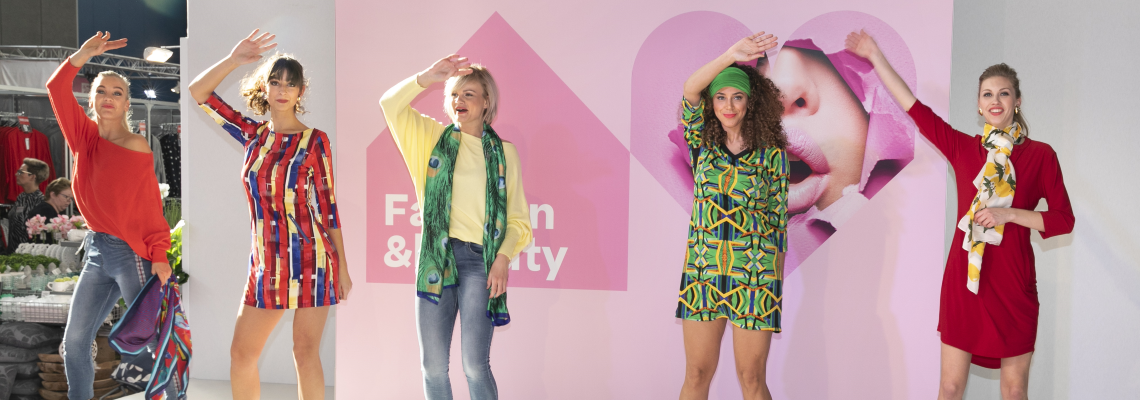75th edition of the Huishoudbeurs: From spuds to food trucks
Most popular consumer exhibition reflects changing society
From a trade exhibition for Dutch housewives to a lifestyle event for the women of today, it’s been some time since the Huishoudbeurs revolved around household appliances alone. Held in the RAI Amsterdam convention centre since 1955, the 75th edition started on 22 February and featured mindfulness workshops, vegan food trucks, a tattoo shop and much more besides.
Over the decades the Huishoudbeurs has constantly evolved to reflect the significant changes in Dutch society. The mid-20th-century exhibitions were still largely concerned with sowing machine demonstrations and innovations that made it easier to peel potatoes. “With the many stands and brandless items, the event was more like an everyday market place,” says Clementine van Meer, exhibition manager from 1984 to 2000. “In the years before my appointment the Huishoudbeurs was seen as a bit of a laugh, an event for women from the rural parts of the country who were lagging behind urban housewives. And I say that as someone who is actually from the countryside myself.”
Emancipated women
There was a clear broadening of the portfolio in the early 1980s when the RAI started organising the exhibition itself. “As a working woman, I thought about what I’d like to see at such an event, ranging from interiors and design to pets,” Van Meer continues. “I also considered the male perspective, hence the focus on DIY and security. And feminism helped boost interest in time-saving devices like the microwave and self-cleaning ovens.” Nicole Babay, current exhibition manager of the Huishoudbeurs, recognises this trend: “You can no longer generalise when it comes to people. Today’s women work, travel, exercise, cook, raise children, you name it. Connecting to this target group means broadening the exhibition.”
Van Meer saw the profile of the average visitor change too during her time at the helm of the Huishoudbeurs. “People started seeing the exhibition as a serious representation of society. Visitors were no longer ashamed to attend, and VIPS such as former prime minister Wim Kok and businesswoman Sylvia Toth attended the openings of the event.” The exhibition also became an important ‘showcase’ for innovations by manufacturers. “Brands like Quooker and Babyliss were launched here before hitting the big time. We also saw a considerable expansion of products in the field of interiors and home décor.”
Opening by power ladies Patty Brard and Mariana Verkerk
Current manager Babay is also seeing a remarkable shift in the food demand during the event: “While visitors used to prefer fast food, now they want sushi and vegan. Although snacks still remain popular many see the event as a real day out.” One thing that hasn’t changed over the years according to the exhibition managers is the broad target group of the Huishoudbeurs, which has always focused on three generations. “We have products for twenty-somethings, forty-somethings and people in their sixties,” says Babay. Prominent individuals, especially strong women, also continue to be part of the event. “In 2013 we had a royal opening with HRM Queen Maxima. This year, the exhibition will be opened by power ladies Patty Brard and Mariana Verkerk.”
Diversity and sustainability
Visitors to the Huishoudbeurs are largely mothers and daughters and groups of friends, with the percentage of men remaining resolutely at just ten per cent. The image that these men only come to ‘carry the bags’ is incorrect says Babay: “There are special stands including a ‘mancave’ and a beer bar, but men also like to walk around and see what’s on offer. They generally have a great time.” The exhibition manager expects that increasing the number of male visitors will be an organic process. “Society is changing and many interests are no longer exclusively for women or men alone.”
The Huishoudbeurs also focuses on visitors from a wide variety of cultural backgrounds via the Pasar Colours Festival. This market revolves around Asian and South American cultures and has helped attract an even broader public says Babay. “Greater diversity will continue to be a focal point for us in the future.” The Huishoudbeurs is also increasing its emphasis on sustainability. In cooperation with the #zokanhetook campaign, it features a special street with food trucks introducing visitors to meat alternatives such as tofu and soya burgers, for instance.
